Ever wonder why some everyday foods aren’t sold in other countries? Different tastes, rules, and food traditions mean certain snacks and drinks are unique to specific places. Here’s a look at some common foods you won’t find everywhere.
Boxed Mac and Cheese
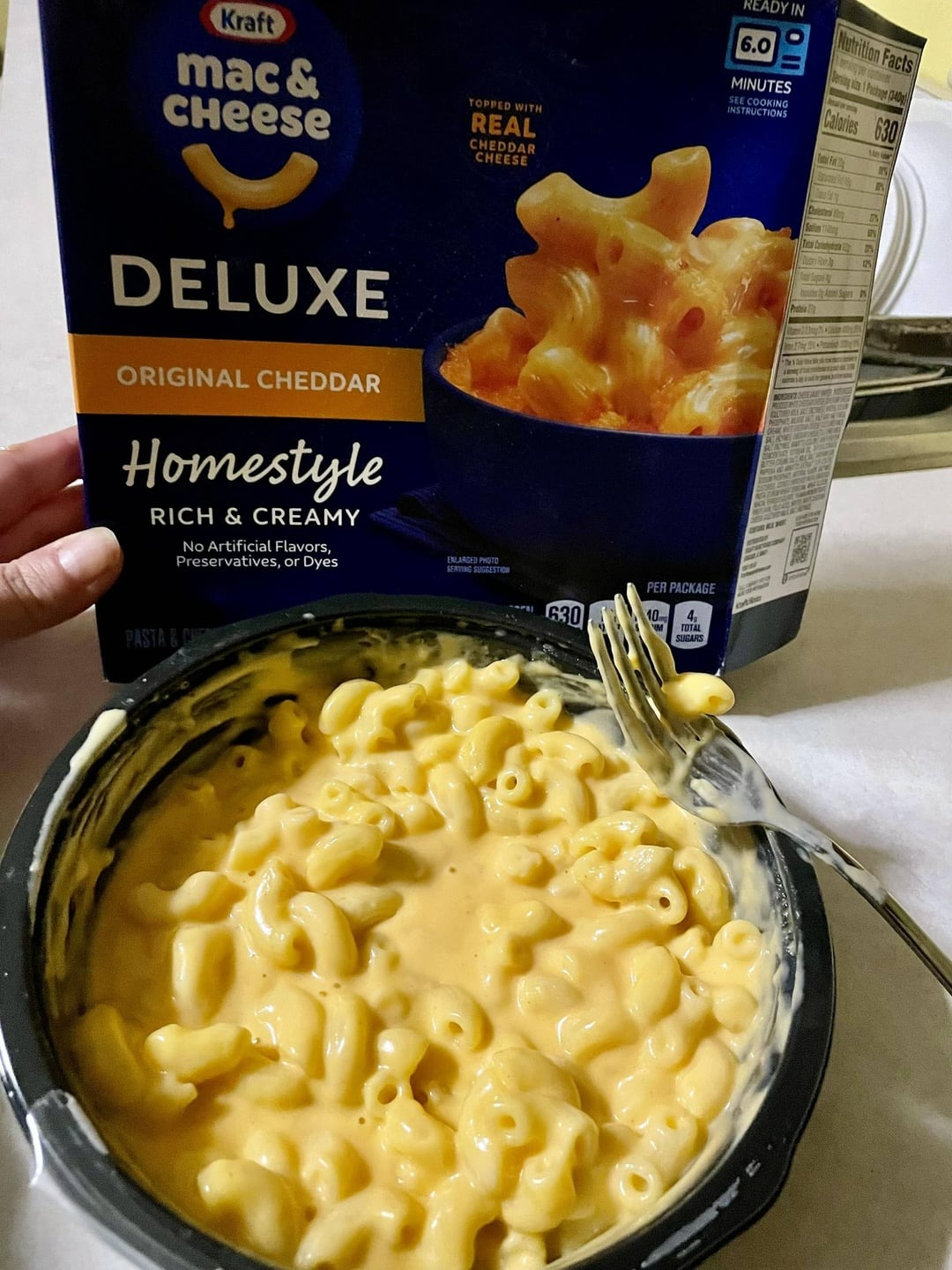

Not available in: Austria, Norway, and the EU
Reason: Potentially harmful coloring agents
Is there anything better than a comforting plate of mac and cheese after a long day? We didn’t think so! While homemade mac and cheese is enjoyed worldwide, finding boxed versions in grocery stores across Austria, Norway, and the EU can be challenging. Many boxed mac and cheese products use a coloring agent that could pose health risks, especially to children. As a result, Kraft Heinz Co. has adapted its recipe to meet European safety standards.
Chewing Gum
Not available in: Singapore
Reason: To keep the streets clean
If you’ve visited Singapore, you know how clean and well-kept the country is. To help maintain this, chewing gum is banned in public areas. Getting caught with it can result in a hefty $100,000 fine or even up to two years in jail. While there are exceptions for those who need gum for medical reasons, chewing gum is largely prohibited to prevent littering and keep the streets spotless.


Coffee Mate
Not available in: Hungary, Iceland, Norway, and Denmark
Reason: Harmful ingredients
For those avoiding dairy, Coffee Mate offers a lactose-free way to add creaminess to coffee. However, this powdered milk substitute contains partially hydrogenated soybean and cottonseed oils, which can be harmful in large amounts and have been linked to heart disease and other health issues. Due to these ingredients, Coffee Mate is banned in Hungary, Iceland, Norway, and Denmark.


Rare Burgers
Not available in: New Zealand and the UK
Reason: Potentially high bacteria levels
How do you like your burgers—well-done, medium, or rare? In the U.S., rare burgers are popular, but in New Zealand and parts of the UK, they’re off the menu. Due to concerns over bacteria in undercooked meat, these countries have banned the sale of rare burgers to protect public health. So, if you’re craving a rare burger there, be prepared for a little extra cooking time!


American-Made Sprinkles
Not available in: Great Britain
Reason: Harmful ingredients
When decorating homemade donuts or cakes, sprinkles may seem like a harmless touch of color and sweetness. But in Great Britain, American-made sprinkles are banned. This is due to an ingredient called erythrosine, or FD&C Red No. 3, which gives sprinkles their red color but has been linked to hyperactivity in children. As a result, sprinkles containing this additive are off the shelves in the UK.


French Fries
Not available in: Singapore, Austria, and the UK
Reason: Contains azodicarbonamide
Rest assured, not all French fries are banned—just some frozen brands. Certain frozen fries contain azodicarbonamide, a chemical additive used to extend shelf life. While convenient for quick meals, this compound can be harmful, especially for people with asthma. For this reason, frozen fries containing azodicarbonamide are restricted in Singapore, Austria, and the UK.
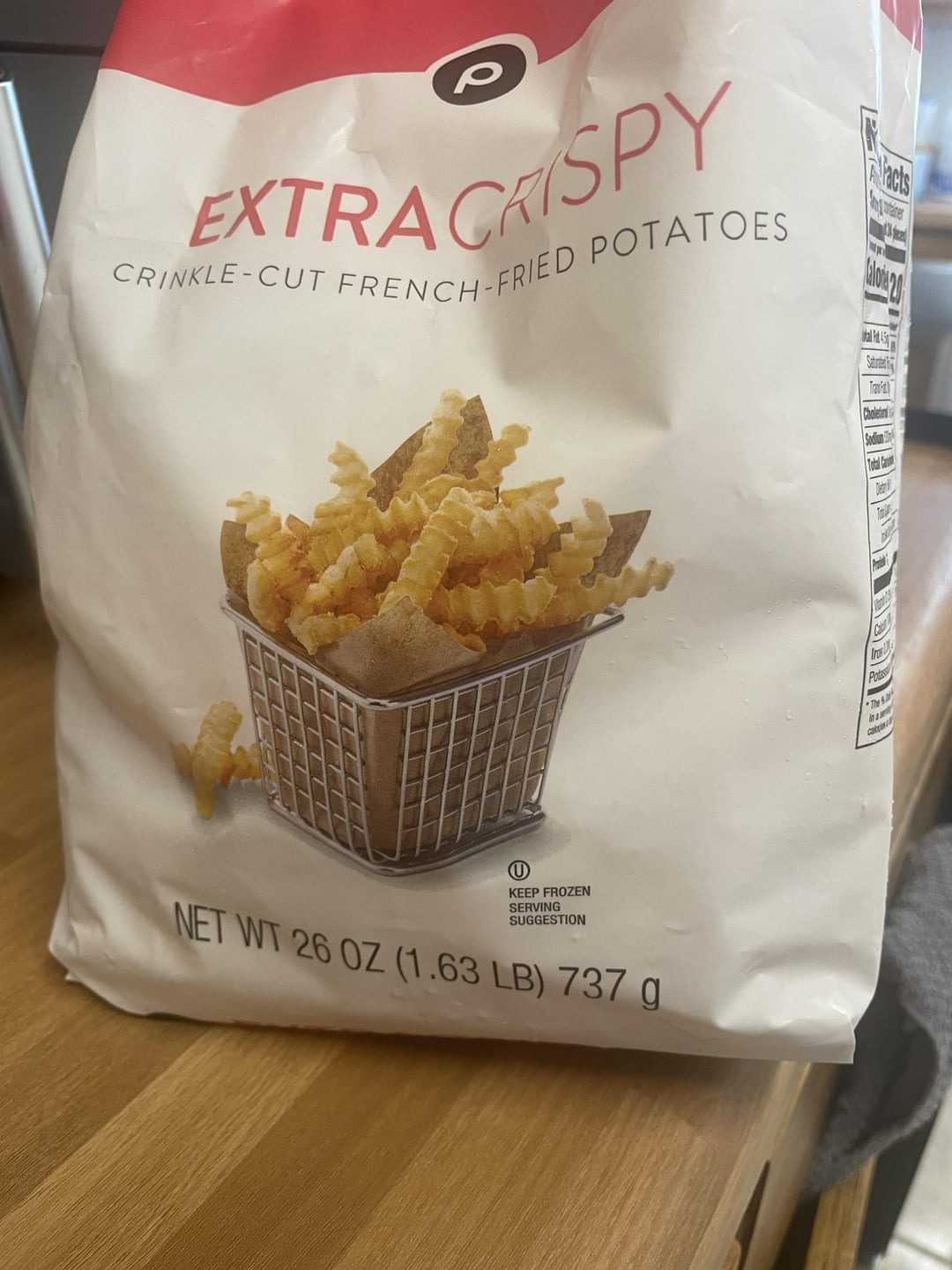

Instant Mashed Potatoes
Not available in: Europe, Japan, and Australia
Reason: Contains dangerous ingredients
For a quick, budget-friendly side dish, instant mashed potatoes are convenient. But while they seem like a simple alternative to homemade mash, many brands include the preservative Butylated Hydroxyanisole (BHA) to preserve flavor. Unfortunately, BHA is a known carcinogen, leading Europe, Japan, and Australia to ban instant mashed potatoes containing this ingredient.
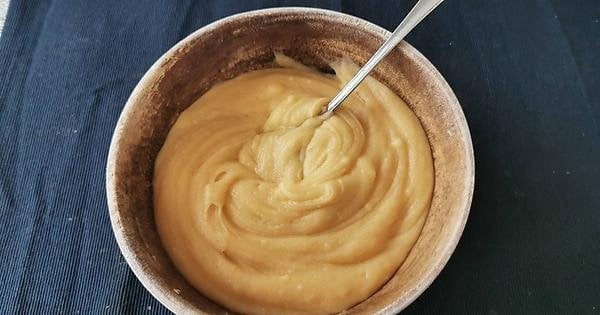

Post Honey Maid S’mores
Not available in: Europe, Japan, New Zealand, Australia, and more
Reason: Contains harmful ingredients
American cereals are known for their fun flavors, but they’re not always the healthiest option. Take Post Honey Maid S’mores, for example—a favorite for its taste, but banned in Europe, Japan, New Zealand, Australia, and other countries. The reason? This cereal contains Butylated Hydroxytoluene (BHT), a preservative linked to cancer, leading to its restriction in these regions.
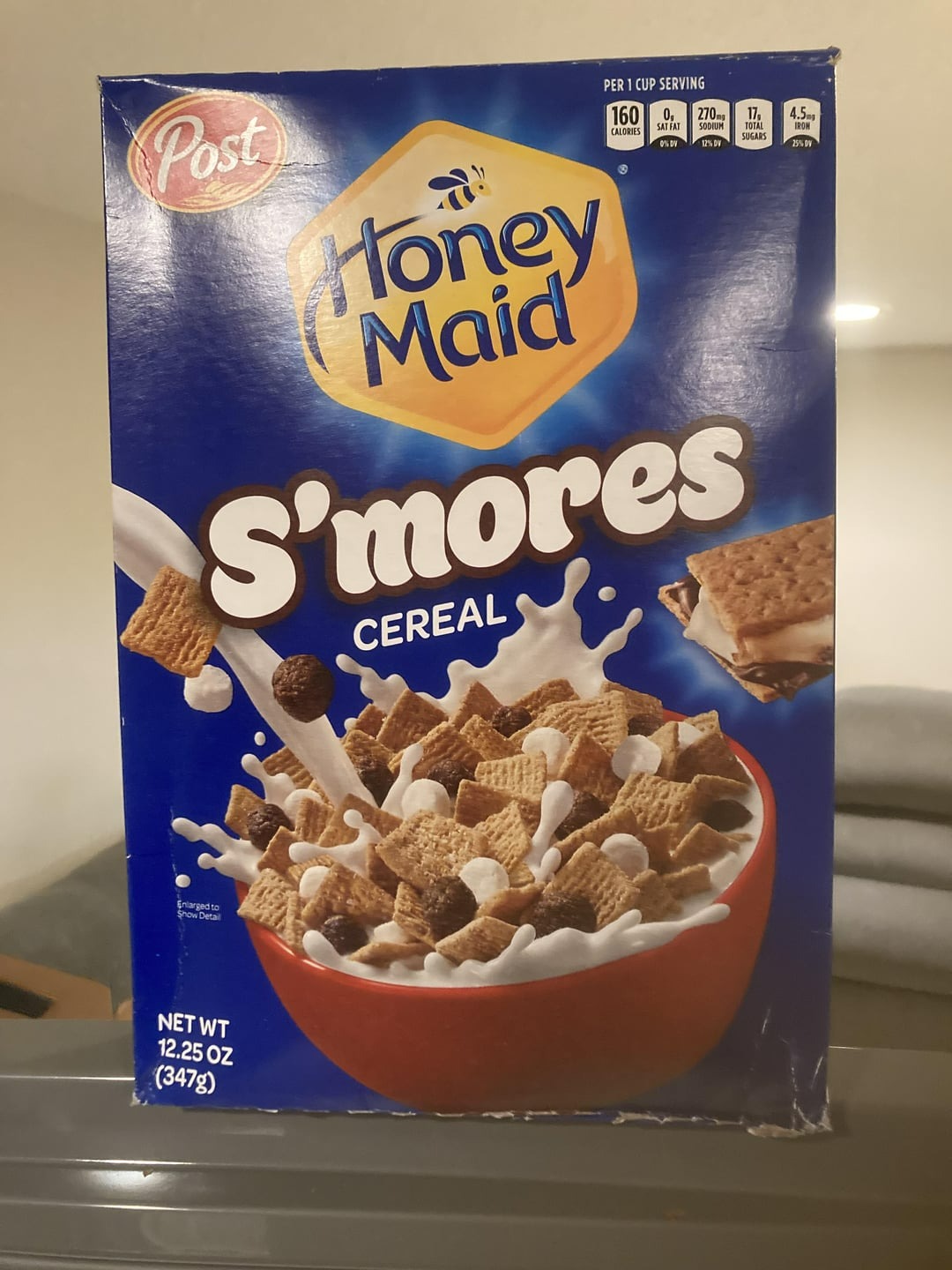

Samosas
Not available in: Somalia
Reason: Religious beliefs
In many Middle Eastern and South Asian countries, samosas are a beloved snack, filled with everything from meat to vegetables. However, you won’t find them in Somalia, where they have been banned since 2011 for religious reasons. A significant portion of the Somali population is Muslim, and they view the triangular shape of samosas as resembling the Holy Trinity in Christianity, leading to their prohibition.


American-Made White Bread
Not available in: UK, Peru, Canada, and more
Reason: Contains harmful ingredients
If you shop for groceries in the U.S., you might not pay much attention to the ingredients in your food. However, many American-made products, including white bread, are banned in various countries. American white bread often contains potassium bromate, an additive used to accelerate the proving and baking processes. Unfortunately, potassium bromate has been linked to nervous system and kidney damage, leading to its prohibition in the UK, Peru, Canada, and other nations.


Ritz Crackers
Not available in: Denmark, Switzerland, Iceland, Norway, Austria, Hungary
Reason: Contains harmful ingredients
Ritz Crackers are well-known around the globe, especially in the United States, but they are seldom found in Europe due to a potentially harmful ingredient. Ritz Crackers contain hydrogenated cottonseed oil, which has sparked debate over its health effects. While some argue it has benefits, it has also been linked to liver damage, infertility, and heart disease. As a result, this ingredient has led to the crackers being banned in Denmark, Switzerland, Iceland, Norway, Austria, and Hungary.


Soybeans
Not available in: Greece, Luxembourg, Austria, Hungary, and Bulgaria
Reason: Genetic modification
As vegetarian and vegan diets gain popularity, the demand for soybeans has surged. To meet this demand, many U.S. farmers have resorted to genetic modification to produce larger, faster-growing crops. However, this practice has raised health concerns, including links to cancer. As a result, genetically modified soybeans have been banned in nearly half of the countries in the European Union, including Greece, Luxembourg, Austria, Hungary, and Bulgaria.


Mountain Dew
Not available in: Europe and Japan
Reason: Causes birth defects
Mountain Dew is a popular beverage in America, but you won’t find it in some parts of Europe and Japan. These countries have banned the soft drink due to its harmful ingredients. Mountain Dew contains chemicals linked to serious health issues, including birth defects, hearing loss, and psychological problems. Despite these risks, the drink remains widely available in the United States, with no purchase limits.


Casu Marzu
Not available in: The U.S.
Reason: The fermentation process
You can never go wrong with cheese, right? Well, that’s not the case for Casu Marzu cheese in the U.S. This unique cheese, beloved by many around the world for its hard pecorino outer layer and soft, creamy interior, is banned in the U.S. The reason? Its distinctive texture comes from a special fermentation process involving fly larvae (maggots) that release a liquid to soften the cheese. Given this process, the U.S. has opted not to allow the sale of maggot cheese.


Tostitos Salsa Con Queso Dip
Not available in: Norway and Austria
Reason: Contains dangerous food colorings
For many food lovers in the U.S., chips and dip are an unbeatable snack, and Tostitos Salsa Con Queso Dip is a favorite for its delicious taste and vibrant appearance. However, that bright color comes from Yellow 5 and Yellow 6 food colorings, which are banned in Norway and Austria due to their association with severe allergies. As a result, you won’t find Tostitos Salsa Con Queso Dip in these countries.


American-Raised Pork
Not available in: 150 countries around the world
Reason: Contains ractopamine
Pork is widely consumed around the globe, but many countries steer clear of American-raised pork due to the use of chemicals, particularly ractopamine. This substance is injected into pigs to promote rapid growth, but it can be harmful to those who consume the meat. As a result, 150 countries have chosen to ban American-raised pork to protect public health.
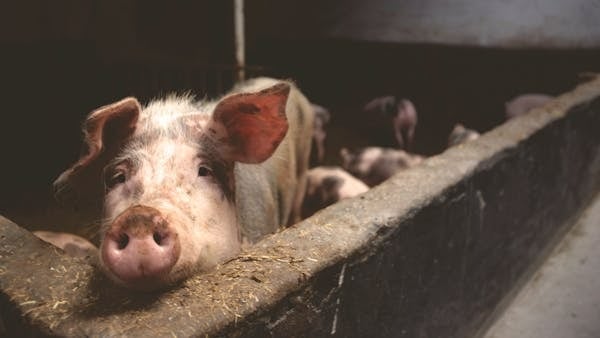

Betty Crocker Fudge Brownie Mix
Not available in: Denmark, Switzerland, Iceland, Norway, Austria, Hungary
Reason: Dangerous ingredients
If you’re not keen on spending hours in the kitchen, you may have turned to Betty Crocker for quick and easy baking solutions. While Americans frequently enjoy Betty Crocker Fudge Brownie mix, it’s banned in several European countries. This is due to its ingredients, specifically hydrogenated cottonseed oil and soybean oil, both of which can be harmful when consumed in large amounts.


Fresca
Not available in: EU
Reason: Contains bromine
Fresca, a citrus-flavored soda, enjoys popularity in the U.S. but is largely unknown in Europe, where it’s banned. The reason? Fresca contains bromine, a substance known to irritate and potentially harm human tissue, and even trigger severe mental health issues. The European Union has prohibited bromine, making it impossible for this soda to be sold in its member countries, although it remains available elsewhere. Unfortunately, there are no signs that the recipe will be altered anytime soon.
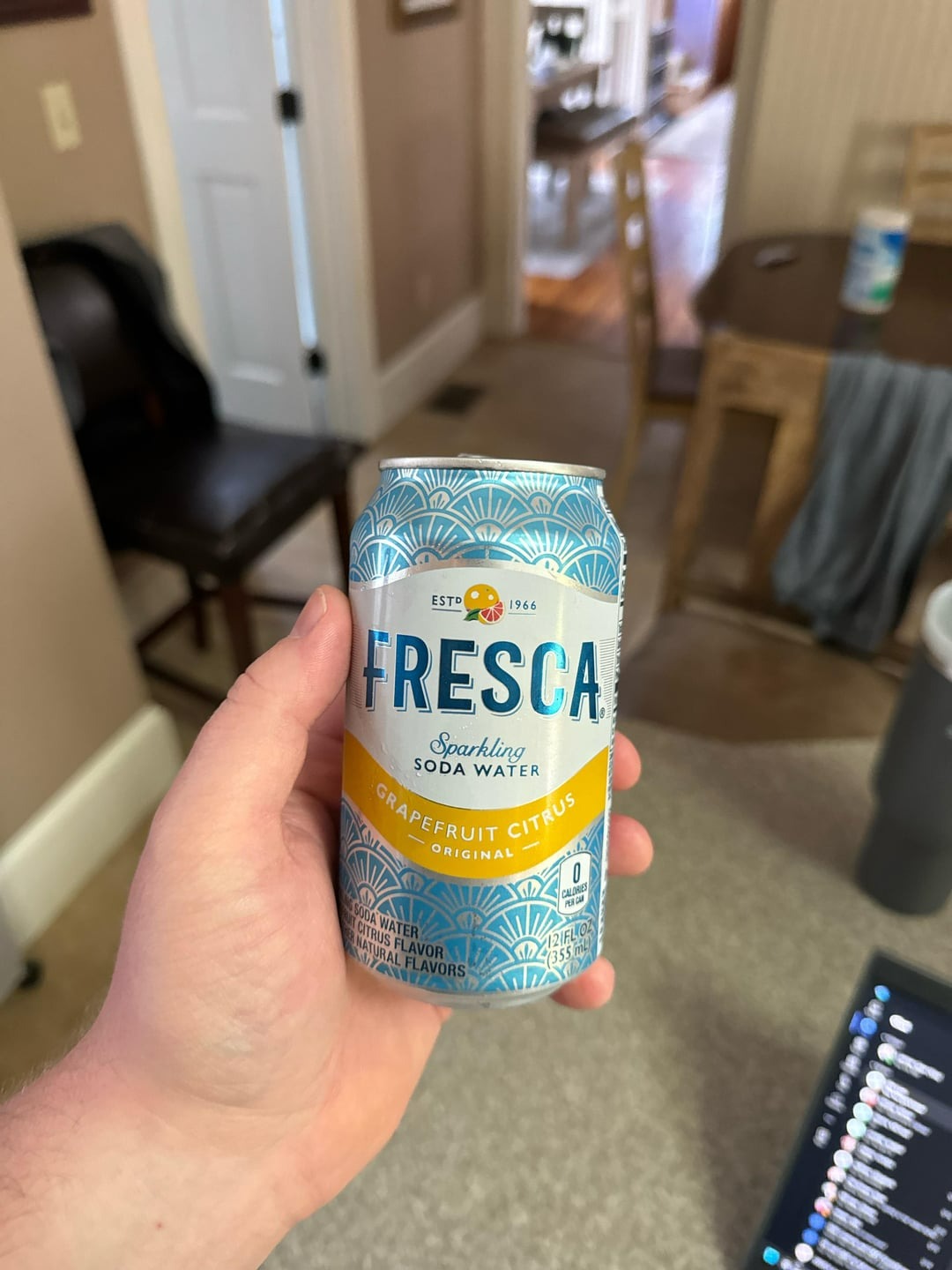

Hot Dogs
Not sold in: United Arab Emirates
Reason: To reduce obesity
Hot dogs, often topped with mustard and ketchup, are a common favorite worldwide. However, you won’t find them in the United Arab Emirates. Following a 2014 study that revealed 14% of school-age children were overweight, the country banned hot dogs in schools. The focus shifted to providing nutritious food options rather than hot dogs, which are high in sodium, fat, and processed meats. This ban also extends to soda and potato chips as part of a broader effort to combat obesity.
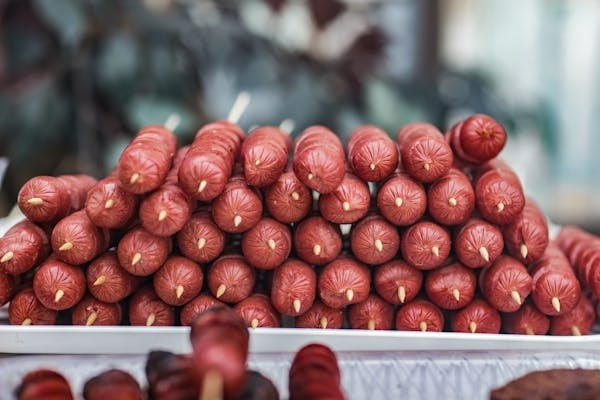

Raw Milk
Not sold in: UK, Canada, and some areas of the U.S.
Reason: Health concerns
While food trends often highlight various nutritional benefits, drinking raw, unpasteurized milk is one that remains controversial. Although some individuals enjoy its potential digestive advantages, it is largely unavailable in the UK, Canada, and certain parts of the U.S. The health risks associated with raw milk, particularly the dangers of Salmonella and Listeriosis, have led many countries to permit only the sale of pasteurized milk. This pasteurization process helps eliminate harmful germs and potential illnesses, ensuring a safer option for consumers.
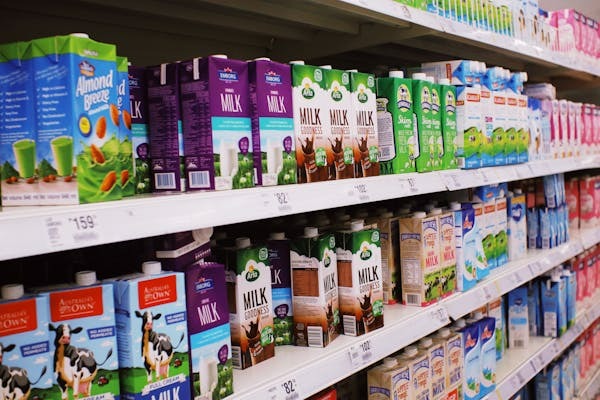

Foie Gras
Not sold in: 16 countries around the world
Reason: Animal cruelty
Foie gras, a delicacy made from the liver of ducks that are force-fed to achieve a creamy texture, is a contentious food item. The practice involves farmers feeding the ducks twice daily for a minimum of two weeks before slaughtering them. This method of production has raised significant ethical concerns, leading to its ban in 16 countries, including Australia, Israel, Denmark, Italy, and Germany. These countries have deemed the force-feeding process as a form of animal cruelty, resulting in a widespread rejection of foie gras in favor of more humane farming practices.
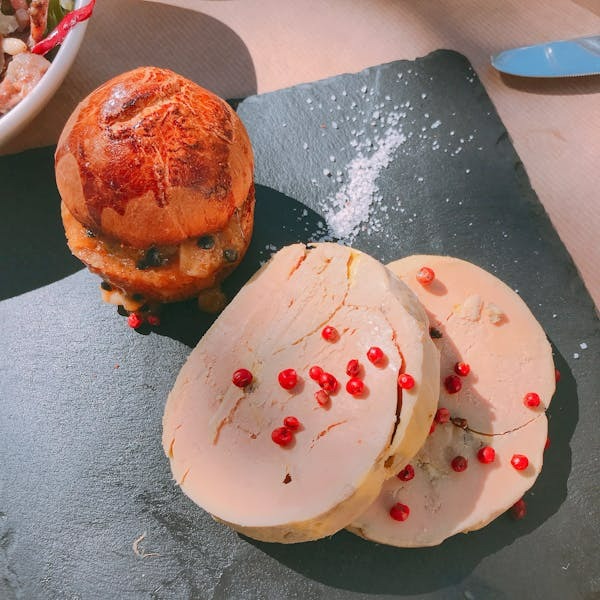

Little Debbie Swiss Rolls
Not sold in: Norway and Austria
Reason: Dangerous food colorings
Little Debbie Swiss Rolls, a popular treat in the U.S. made from chocolate cake and cream, contain artificial food colorings like Yellow 5 and Red 40. These additives have been linked to various health issues, including behavioral problems in children, birth defects, and organ failure. Due to these health concerns, both Norway and Austria have banned the sale of Little Debbie Swiss Rolls to protect consumers from the potential risks associated with these ingredients.
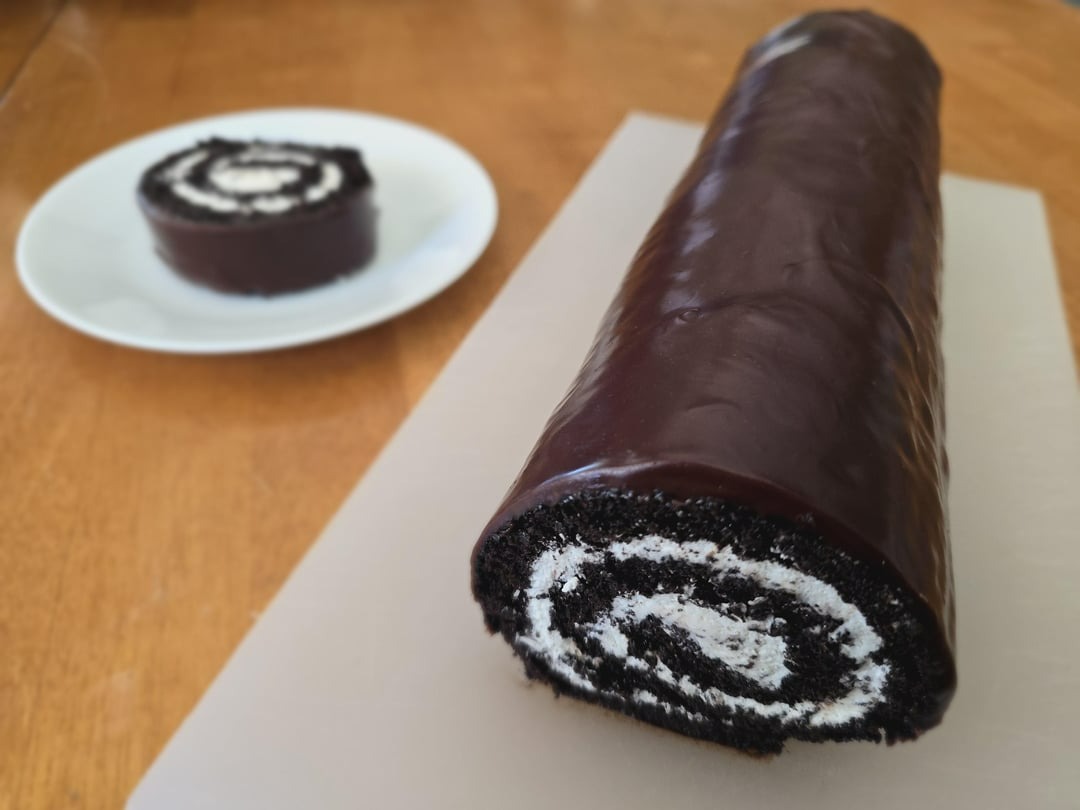

Skittles
Not sold in: Sweden and Norway
Reason: Dangerous artificial colors
Skittles, a beloved candy known for its vibrant colors, contains artificial colorings Yellow 5 and Yellow 6. These additives have been associated with hyperactivity and allergic reactions in both children and adults. Concerned about the potential health risks posed by these ingredients, Sweden and Norway have banned Skittles to protect their citizens from these harmful effects.
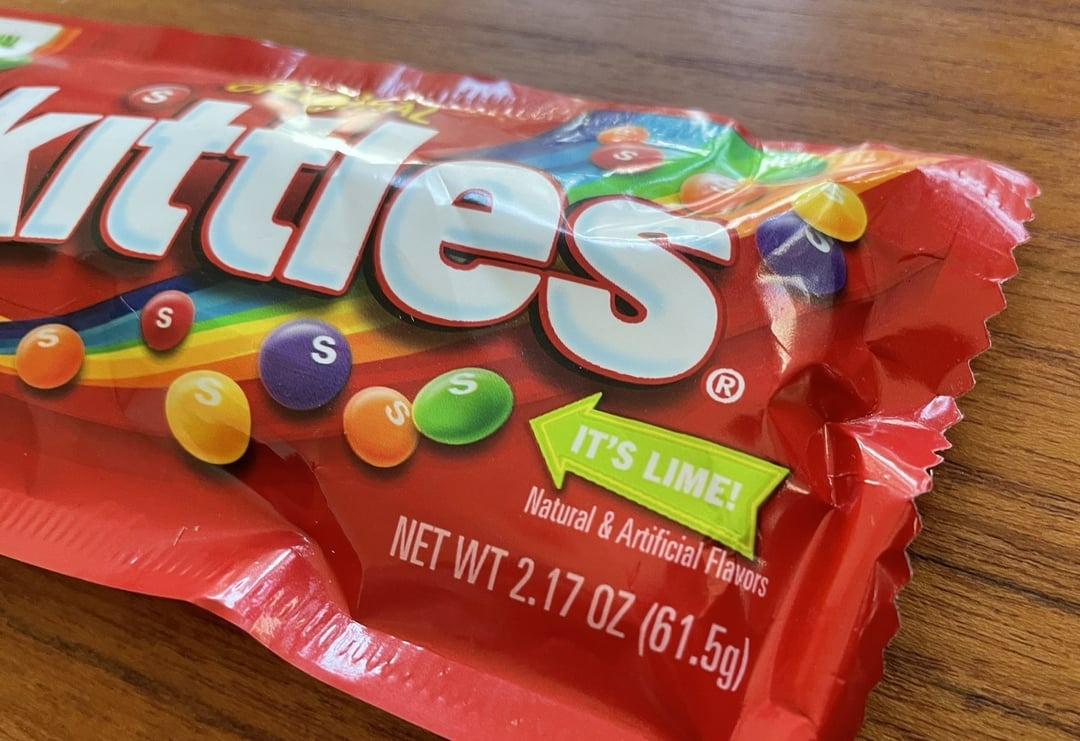

Fruit Loops
Not sold in: Austria, Norway, France, Finland
Reason: Artificial colors
Fruit Loops, a popular cereal among kids, has faced criticism due to its high content of artificial colors and flavorings. Many European countries, including Austria, Norway, France, and Finland, have banned the cereal because these artificial colorings are linked to complications in cell development. As concerns over health and nutrition grow, these countries aim to limit exposure to such potentially harmful ingredients.
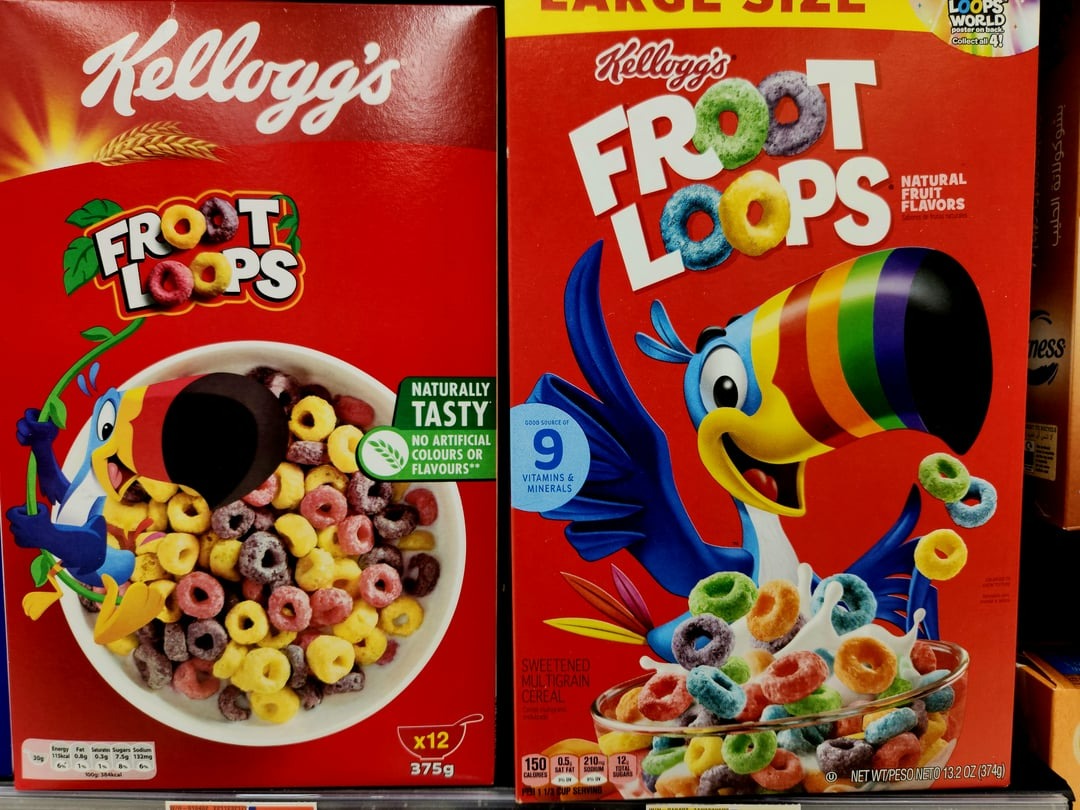

Durian Fruit
Not sold in: Singapore
Reason: The pungent smell
In Singapore, durian fruit, known as “the smelliest fruit,” is banned due to its overpowering odor. Many describe the scent as a mix of rotting onions, sulfur, honey, and sewage, which makes it quite unpleasant for public spaces. While the fruit is popular in other parts of the world for its unique taste and nutritional value, the government of Singapore has decided to keep it off the streets to maintain a more pleasant environment.
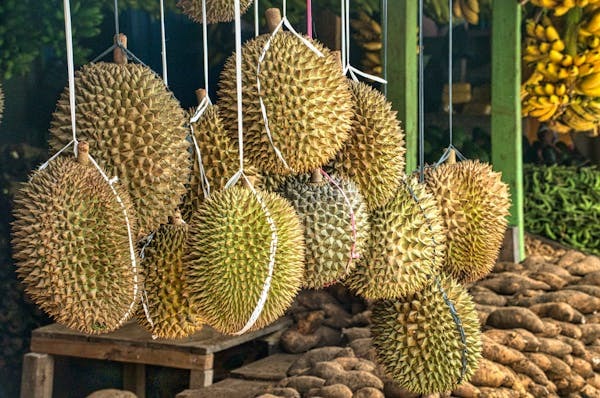

Farm-Raised Salmon
Not sold in: Australia and New Zealand
Reason: Health concerns
Farm-raised salmon is banned in Australia and New Zealand due to health concerns related to its production. Unlike wild salmon, farm-raised varieties are often fed petrochemicals to enhance their pink color. These substances pose potential health risks to consumers and have been linked to eye problems and other health issues. As a result, both countries have opted to prohibit the sale of farm-raised salmon to protect public health.
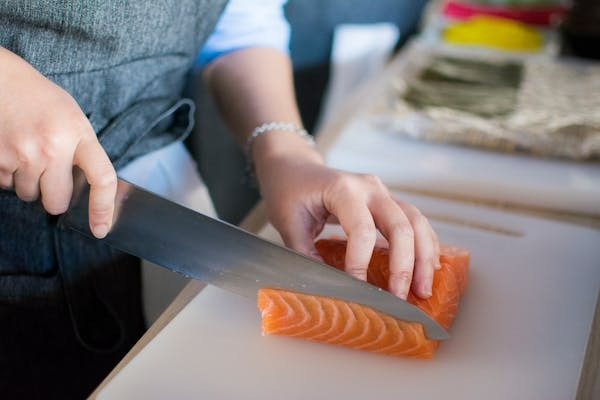

Beluga Caviar
Not sold in: United States
Reason: Conservation reasons
Beluga caviar, often referred to as “black gold,” is a highly sought-after delicacy in many parts of the world, particularly in upscale dining establishments. However, it is banned in the United States due to conservation concerns surrounding the critically endangered Beluga whale. The decline in Beluga whale populations has led to the prohibition of this luxury item in an effort to protect the species and its habitat.
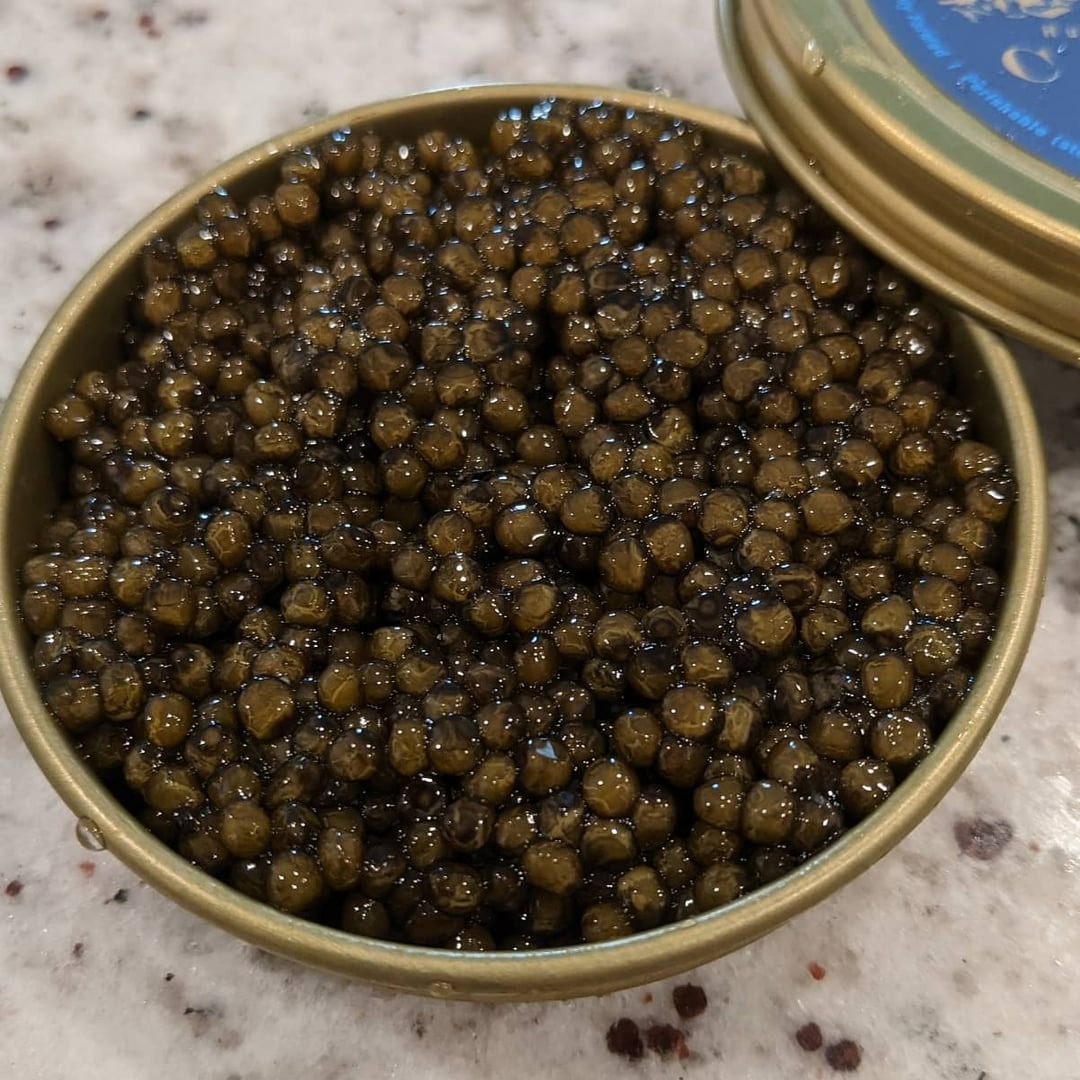

Pop-Tarts
Not sold in: Europe
Reason: Dangerous food colorings
Pop-Tarts, a beloved American snack, are known for their wide array of flavors and convenient, ready-to-eat format. However, their popularity doesn’t extend to many European countries, where they are banned due to the presence of harmful food colorings. Research has linked these artificial colorings to childhood behavioral issues, prompting European regulators to restrict their sale. Additionally, the high sugar content in Pop-Tarts raises further health concerns, leading some countries to require warning labels on the packaging if they allow sales at all.
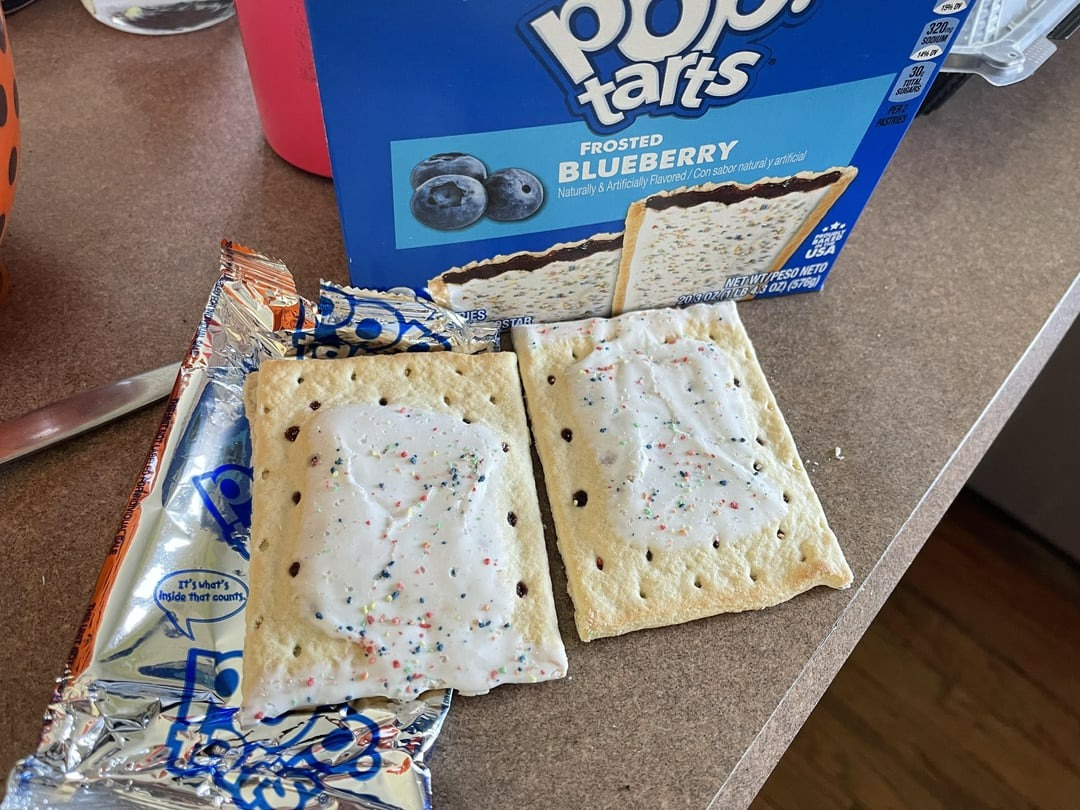

Boxed Pasta
Not sold in: Australia and EU
Reason: Contains azodicarbonamide
Boxed pasta kits are a convenient meal option, but they contain azodicarbonamide, which has resulted in bans in Australia and various European Union countries. This chemical is used to enhance the color and texture of the pasta, making it softer. However, azodicarbonamide is classified as toxic, raising significant health concerns. As a result, these pasta kits are not permitted for sale in regions prioritizing food safety and public health.
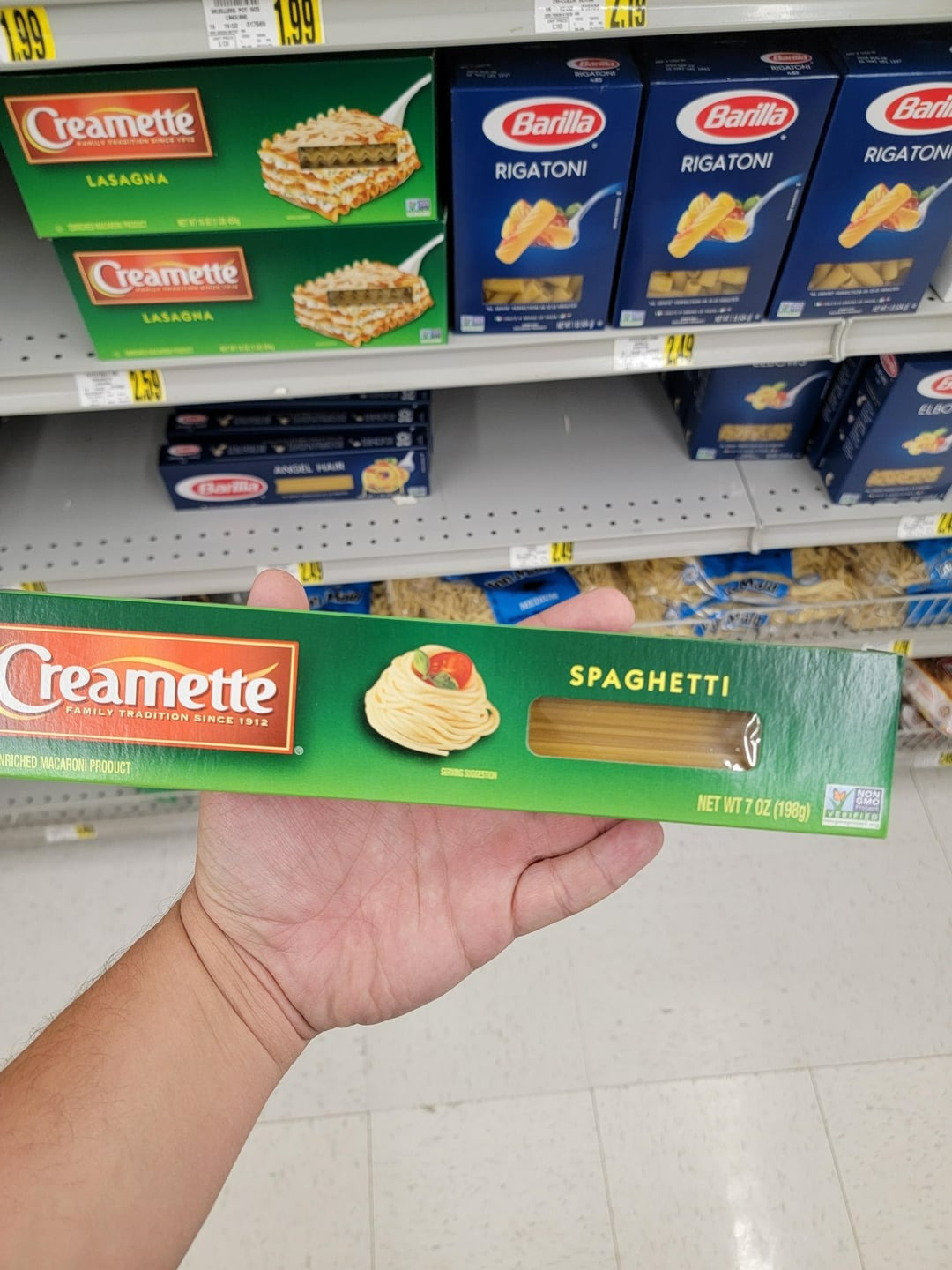

Frosted Flakes
Not sold in: Japan and EU
Reason: Contains BHT
Frosted Flakes is a beloved breakfast cereal, especially among children, thanks to its sugary flavor. However, it has been banned in Japan and several European Union countries due to its inclusion of butylated hydroxytoluene (BHT). While BHT is commonly used in pharmaceuticals, it poses significant health risks when consumed in high doses, making it considered unsafe for human consumption. This has led to the cereal’s prohibition in regions that prioritize food safety and public health standards.
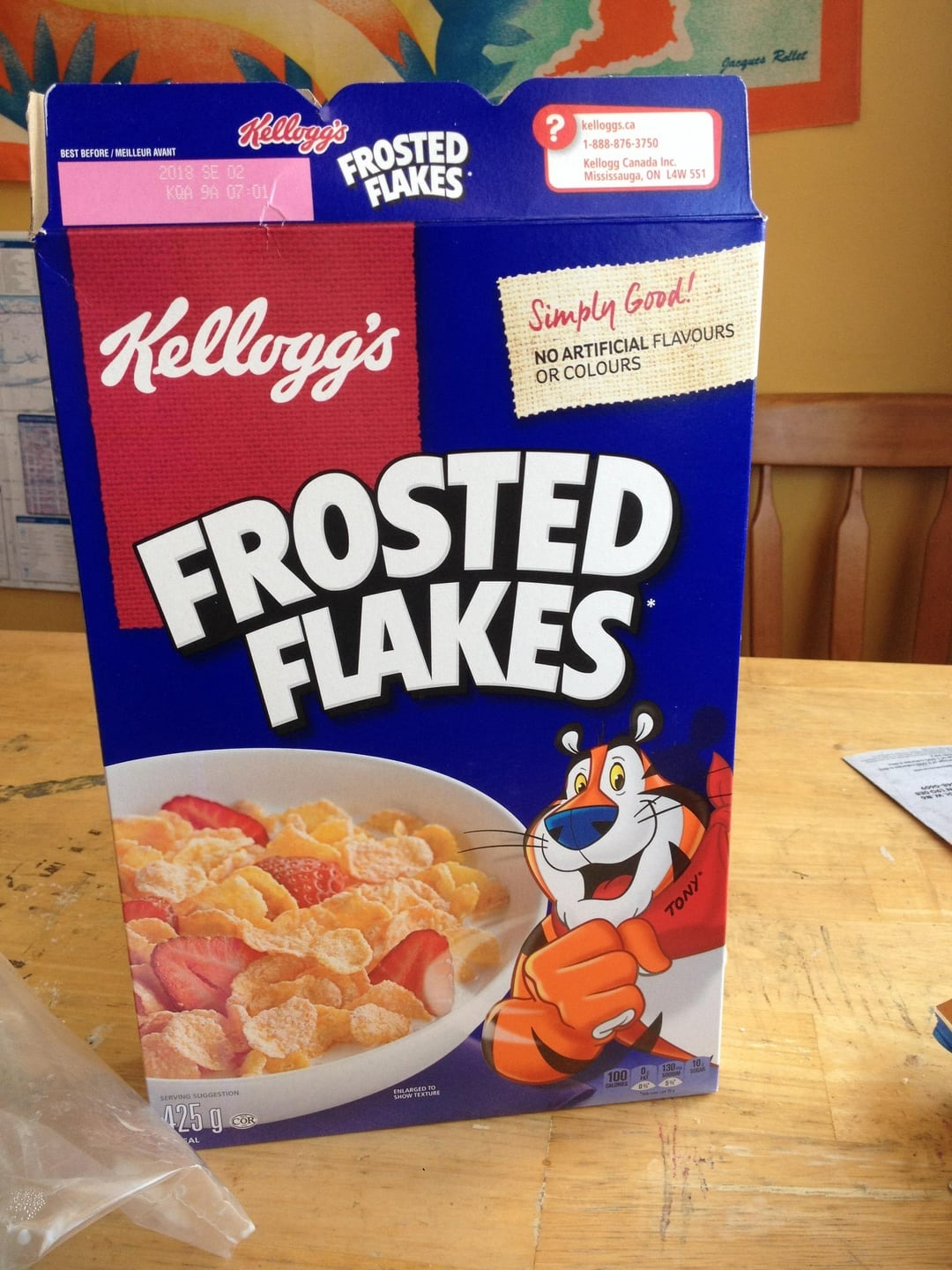

Haggis
Not sold in: United States
Reason: Breaks Department of Agriculture laws
Haggis, the traditional Scottish dish made from sheep’s lungs, heart, and other ingredients, is a beloved staple in Scotland. However, it is completely banned in the United States due to a law established by the Department of Agriculture in 1971 that prohibits the consumption of animal lungs. This regulation effectively prevents haggis from being produced or sold in the U.S., leaving those who move from Scotland unable to enjoy this national delicacy.
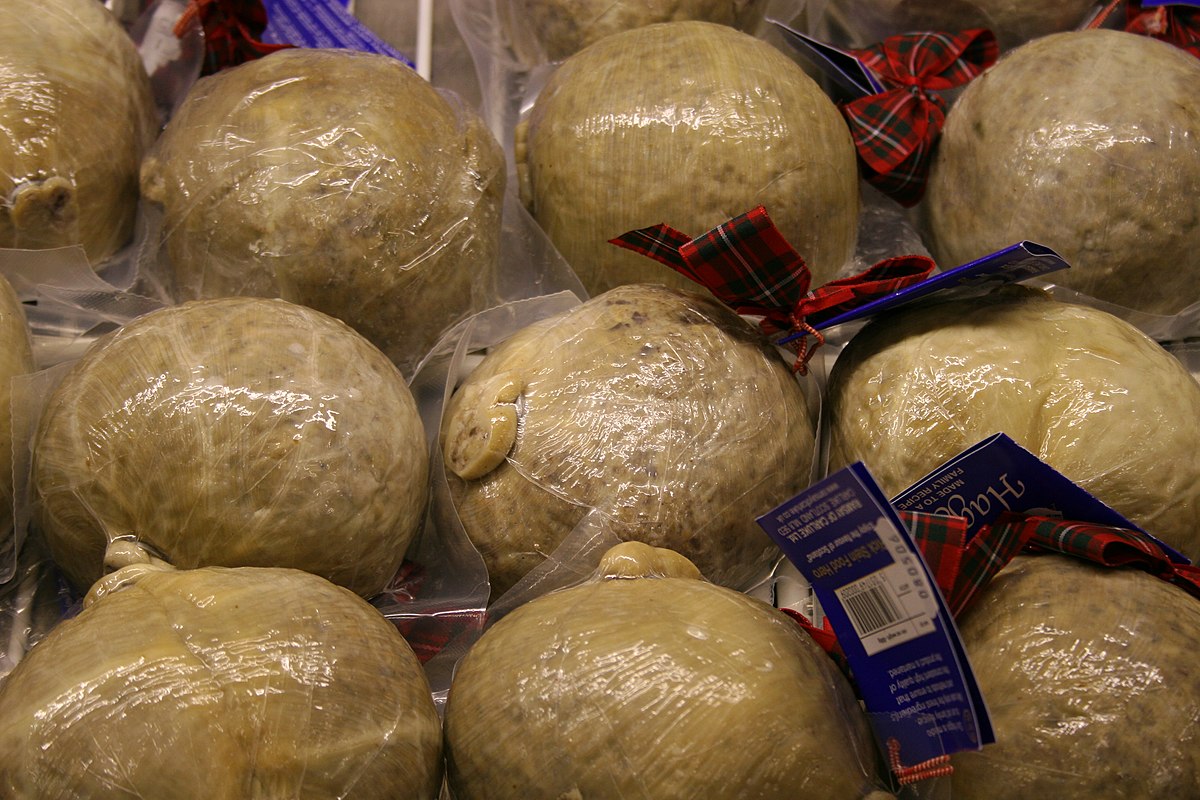

Black Pudding
Not sold in: United States
Reason: Sanitary concerns
Black pudding, also known as blood sausage, is a traditional British dish made from a mixture of oatmeal, barley, and the blood of pigs or cows, encased in the intestines of the animal. Despite its popularity in the UK, black pudding is banned in the United States due to concerns about sanitation and the potential for bacterial transfer. The use of animal blood in food products raises health risks, leading to its prohibition in the U.S.
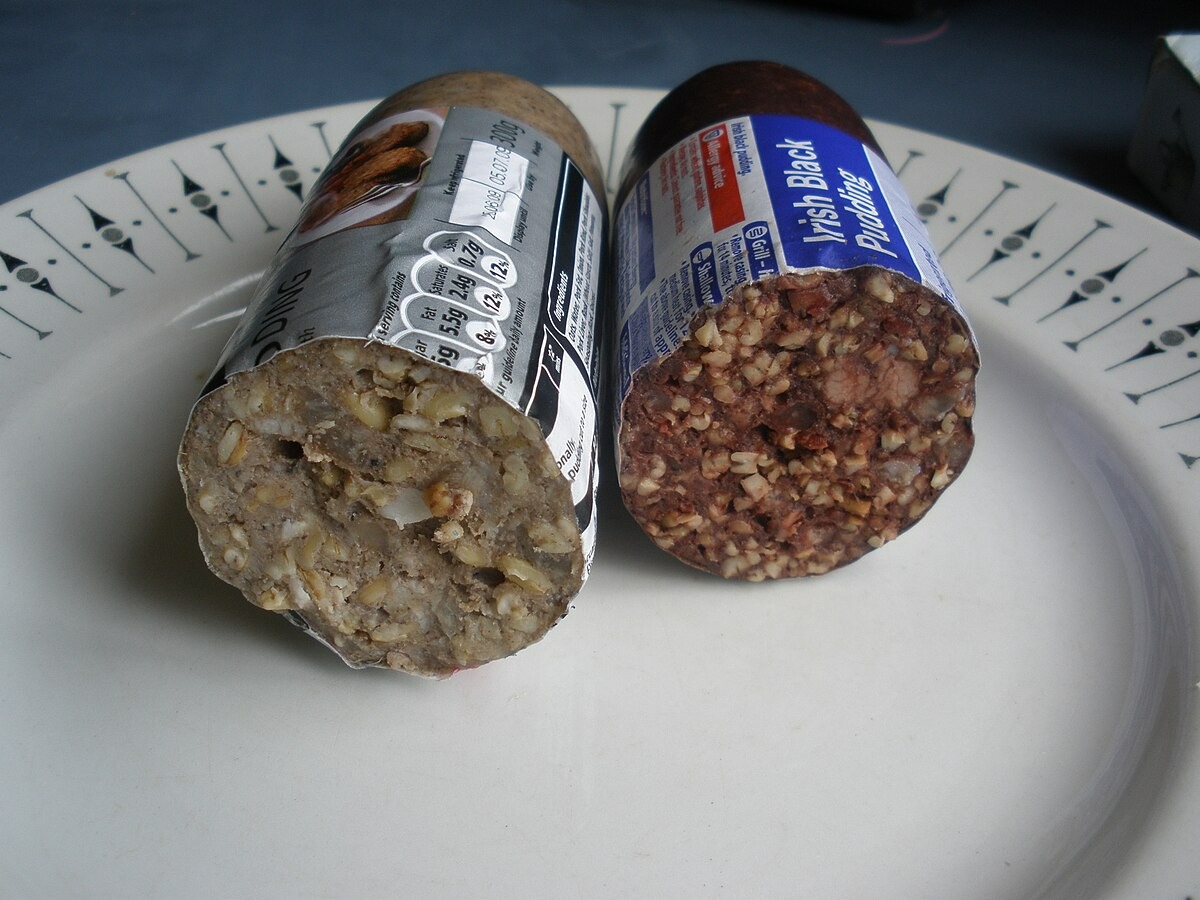

Kinder Surprise Eggs
Not sold in: United States (previously)
Reason: Choking hazard
Kinder Surprise Eggs, known for their chocolate shell containing a plastic egg with a toy inside, were originally banned in the U.S. due to choking hazard concerns. The FDA deemed the toy-filled plastic egg unsafe for young children, leading to a shift in the chocolate industry. However, in 2018, after design modifications that improved safety, Kinder Surprise Eggs were allowed back into the U.S. market, bringing this popular treat back to American shelves.
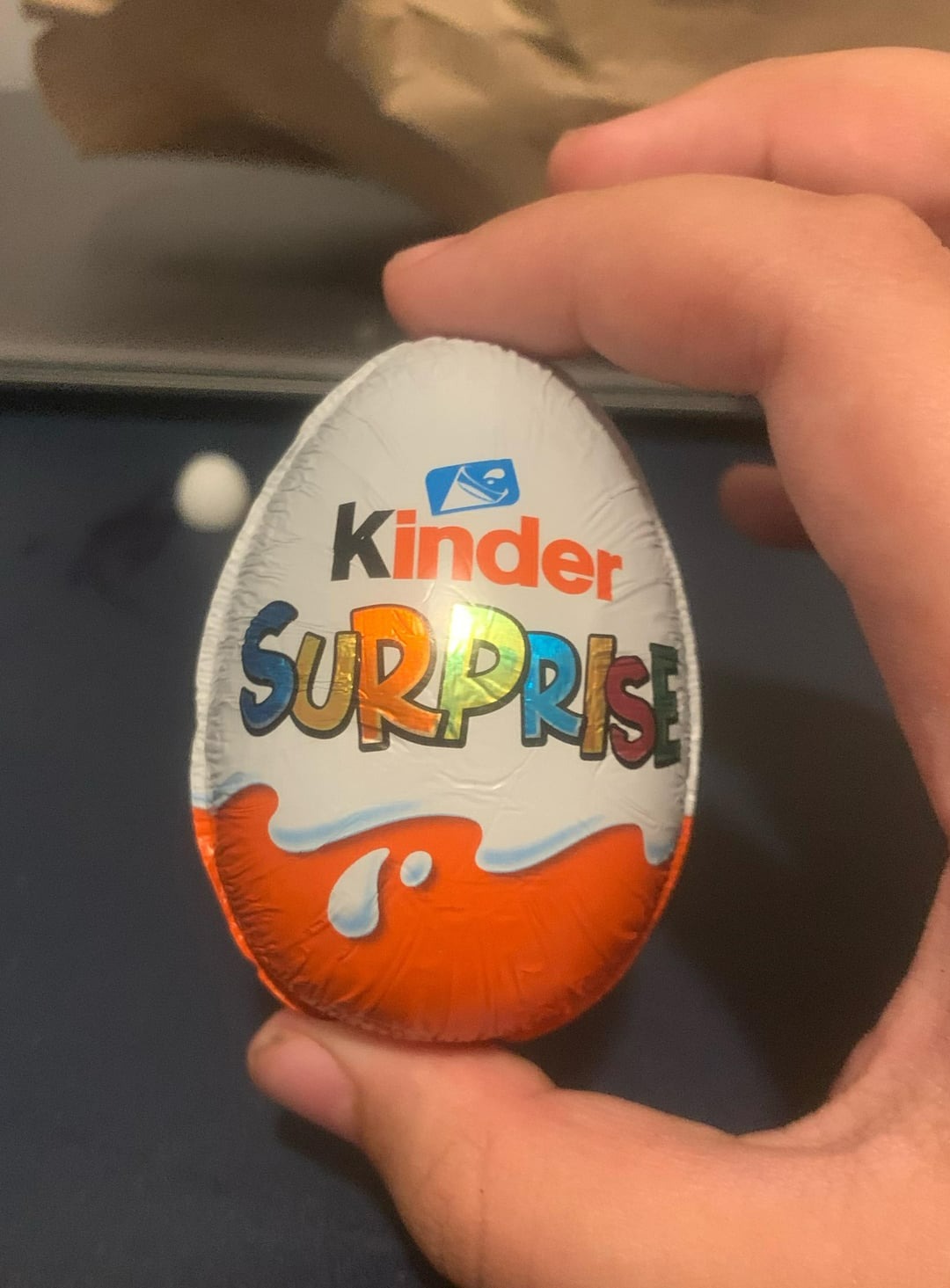

M&M’s
Not sold in: Sweden
Reason: Branding conflict
M&M’s may be beloved worldwide, but in Sweden, they are notably absent from shelves. This is due to a branding dispute with a Swedish candy called “M,” produced by Mondelez. The “M” branding and logo are strikingly similar to M&M’s, and both snacks resemble each other closely, sparking legal conflicts over market rights. As a result, Swedish customers can’t purchase M&M’s domestically.
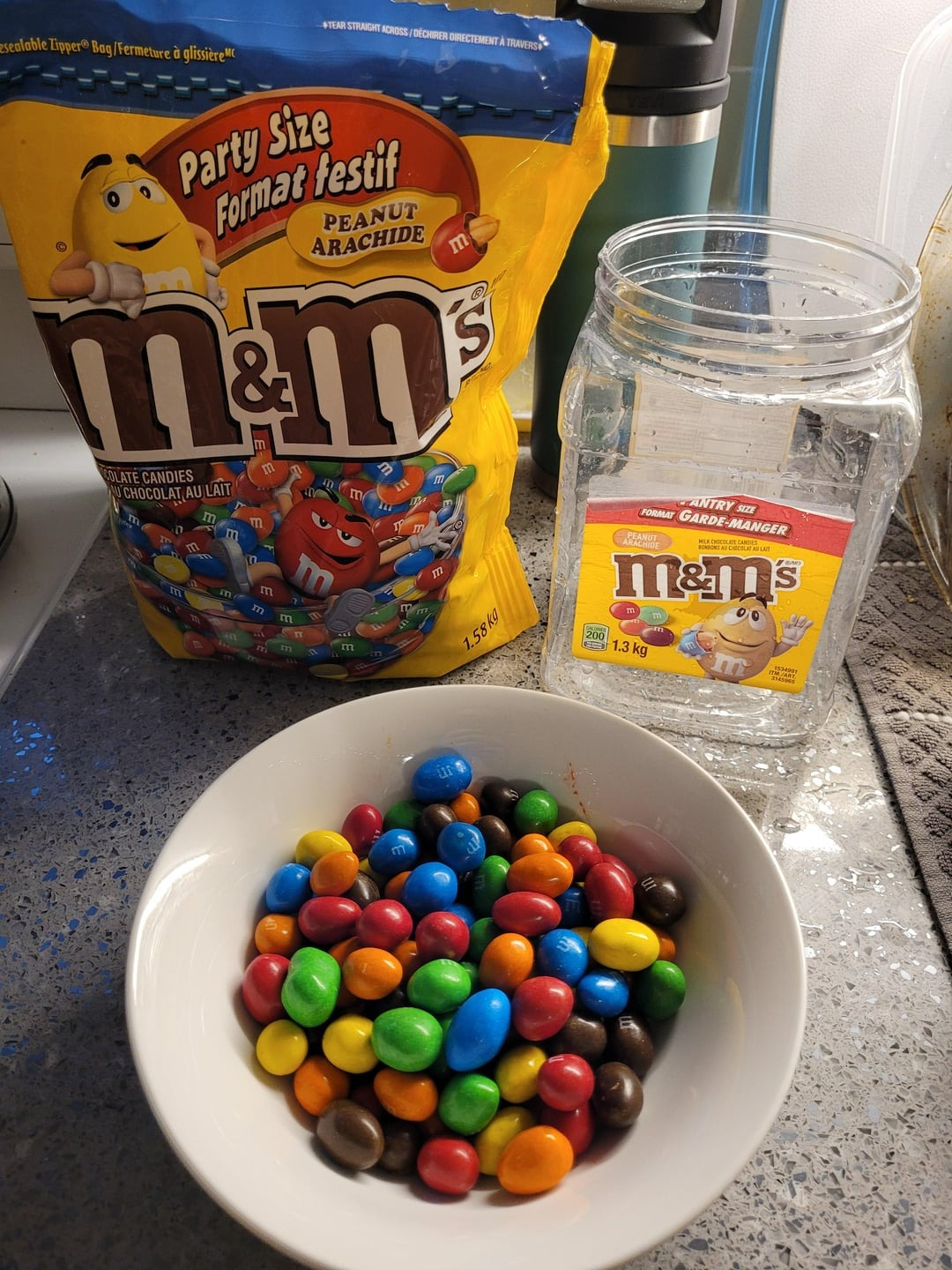

Unpasteurized Cheese
Not sold in: United States
Reason: Bacteria risks
While the U.S. offers a wide variety of cheeses, you won’t find unpasteurized cheese in American grocery stores. This type of cheese is banned due to concerns over bacteria that could potentially make consumers ill. Although scientific research presents mixed findings on these risks, the FDA upholds this restriction as a precautionary measure. So, for Americans, unpasteurized cheese remains off the table to avoid any potential health hazards.
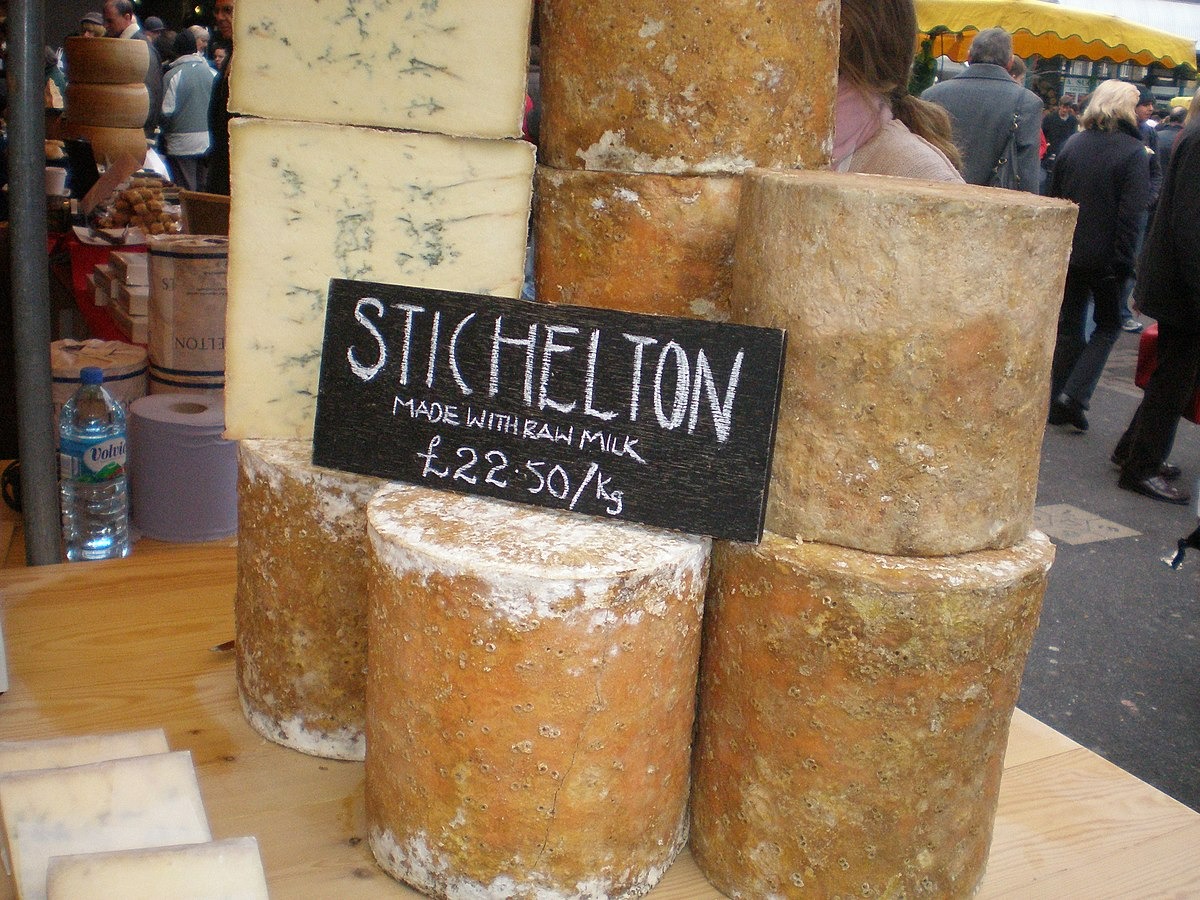

Marmite
Not sold in: Canada and Denmark
Reason: Harmful additives
In the UK, Marmite is a beloved spread, known for its distinctive, intense flavor. However, it hasn’t gained the same popularity worldwide, partly because it’s banned in places like Canada and Denmark. To keep Marmite shelf-stable, it’s packed with certain additives that have raised health concerns. Canada and Denmark decided these additives were reason enough to keep Marmite off grocery store shelves. So, for those countries, Marmite remains an unfamiliar taste.
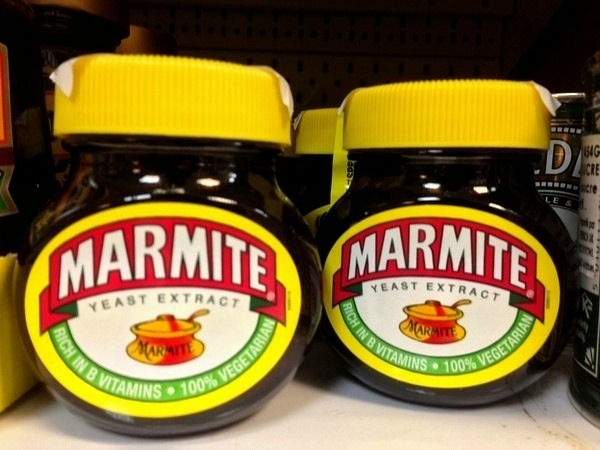

Ketchup
Not sold in: French schools
Reason: Cultural preservation
Ketchup may be a global favorite, but in France, you won’t find it in schools. French authorities have placed a ban on ketchup in school cafeterias, so children can’t use it with their French fries or any other meal. The aim is to protect the French culinary heritage and encourage kids to develop an appreciation for traditional French flavors and dishes. By limiting ketchup, they hope to ensure students experience and enjoy authentic French cuisine from a young age.
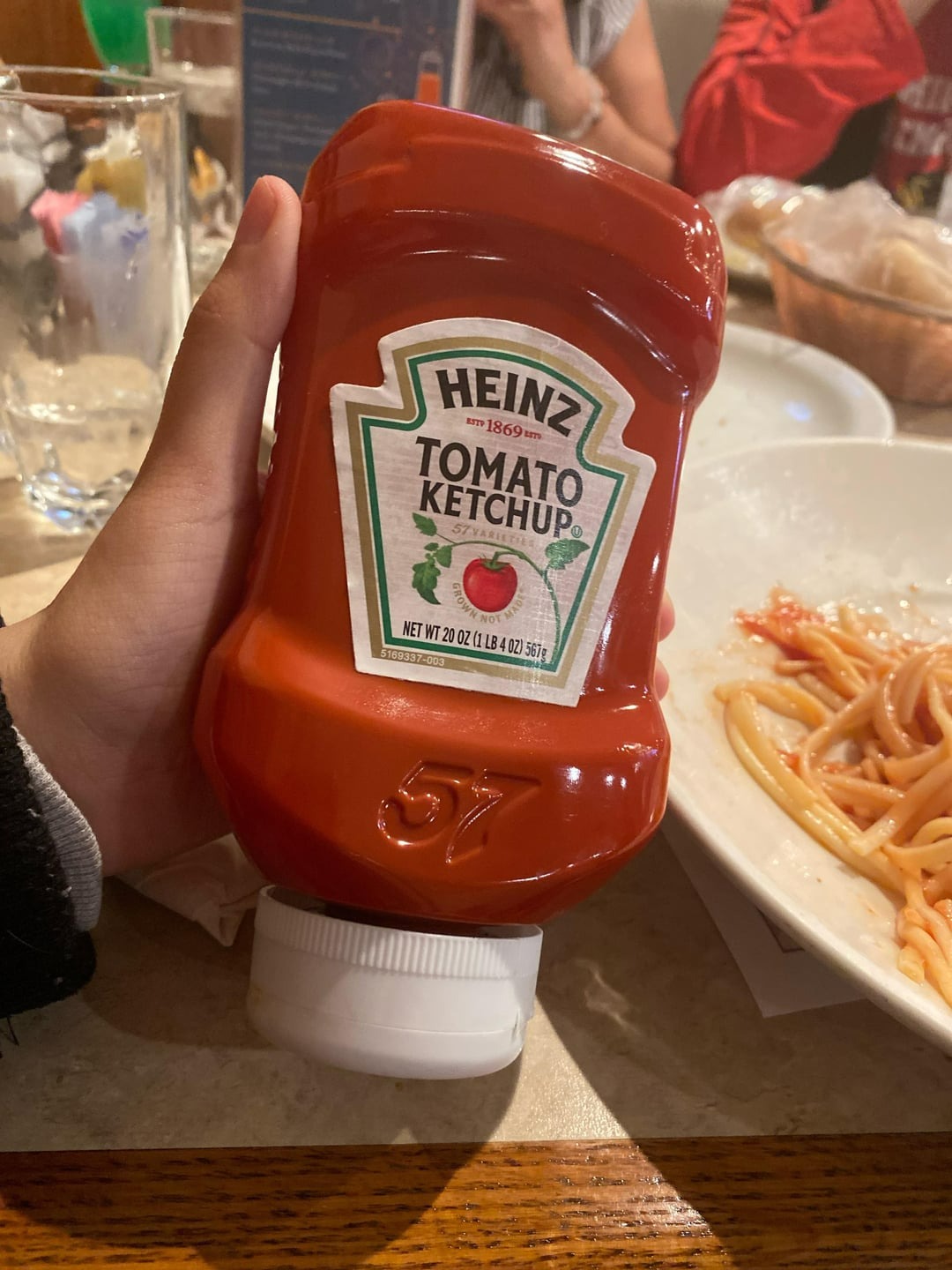

Fugu
Not sold in: The U.S. and European Union
Reason: Potentially fatal if prepared improperly
Fugu, a Japanese pufferfish delicacy, is infamous for being one of the most dangerous dishes to consume. One wrong bite can lead to death, as the fish contains a toxin up to 1,000 times more lethal than cyanide. Only a handful of chefs are certified to prepare it safely, having undergone years of rigorous training. Despite its culinary allure, the extreme risks associated with fugu have led the U.S. and European Union countries to ban it entirely for consumer safety.
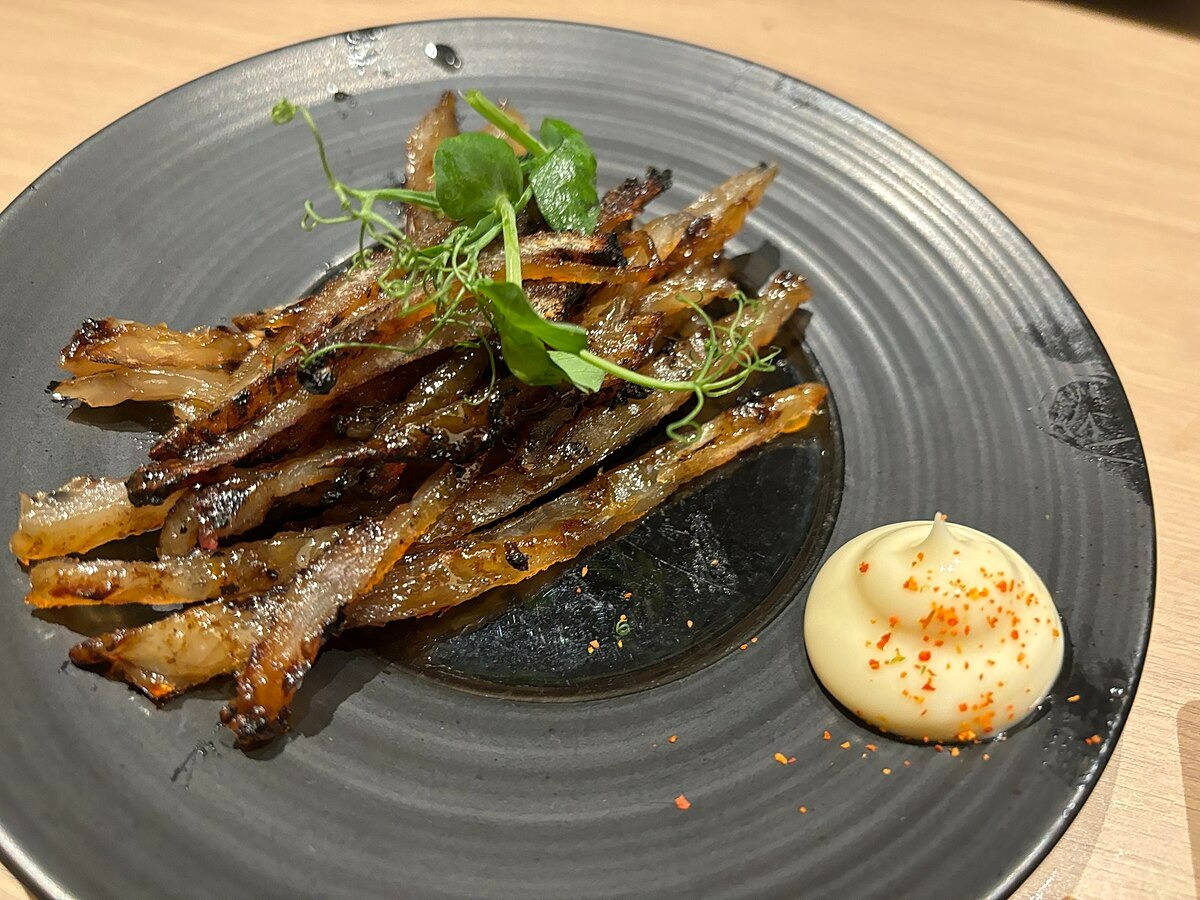

Kebabs
Not sold in: Venice
Reason: Protecting cultural reputation
Kebabs may be a staple in many places worldwide, but Venice has taken a stand against them. In this Italian city, kebabs are banned not for health reasons, but to maintain Venice’s cultural identity and charm. City officials believe that “low-quality” fast food options like kebabs clash with Venice’s traditional culinary heritage and refined atmosphere. By keeping kebabs out, Venice aims to protect its cultural image and preserve its reputation as a hub for traditional Italian cuisine.
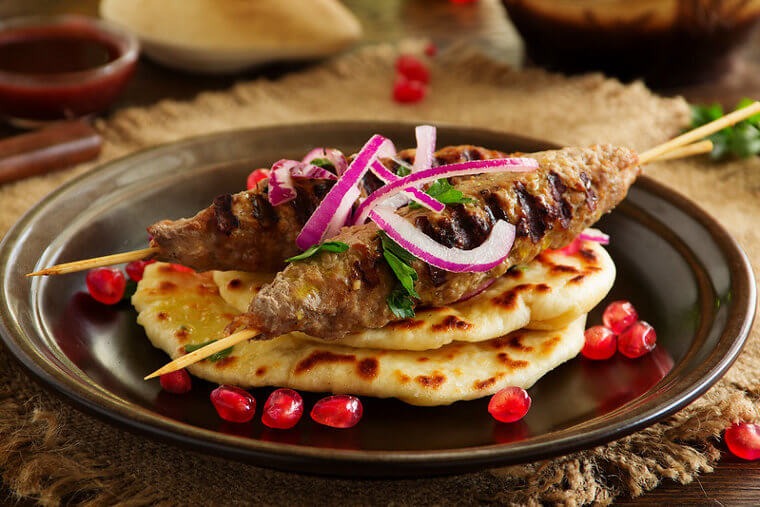

Halal and Kosher Meat
Not sold in: Greece
Reason: Animal welfare concerns
Halal and Kosher meats follow specific religious guidelines for animal slaughter, which often involve practices that don’t include stunning the animal before slaughter. In Greece, this has led to a ban due to animal welfare concerns. The Greek government argues that slaughtering animals without stunning them first causes unnecessary suffering, which violates Greece’s Animal Welfare Acts. Consequently, Halal and Kosher meats are not readily available in Greek markets, which can pose challenges for those who require these meats for religious practices.
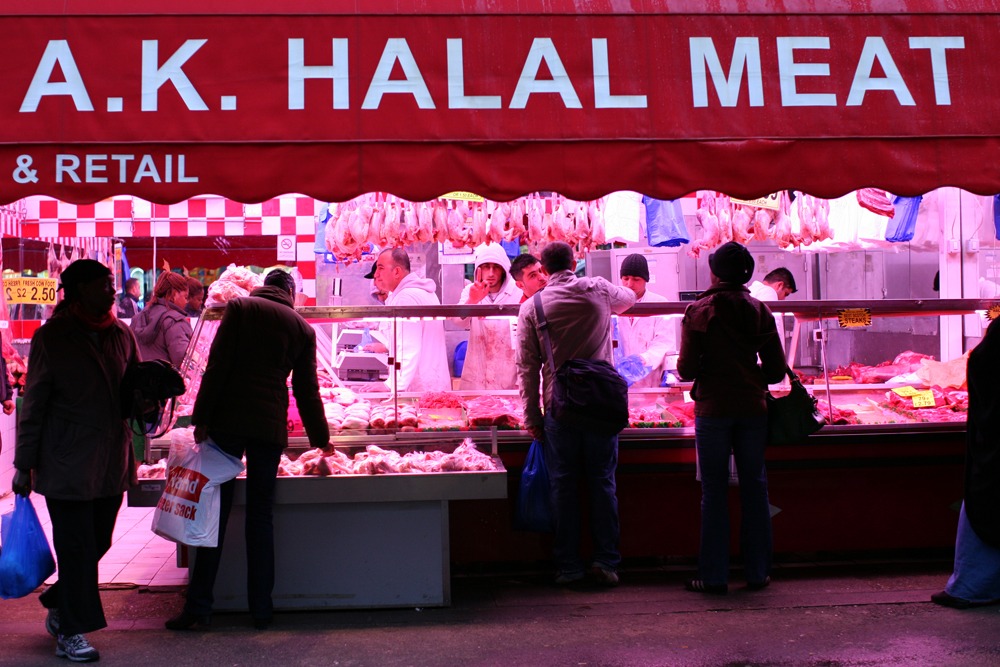

Please SHARE this with your friends and family.







